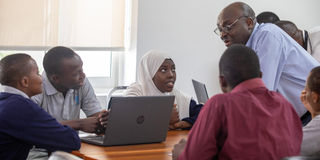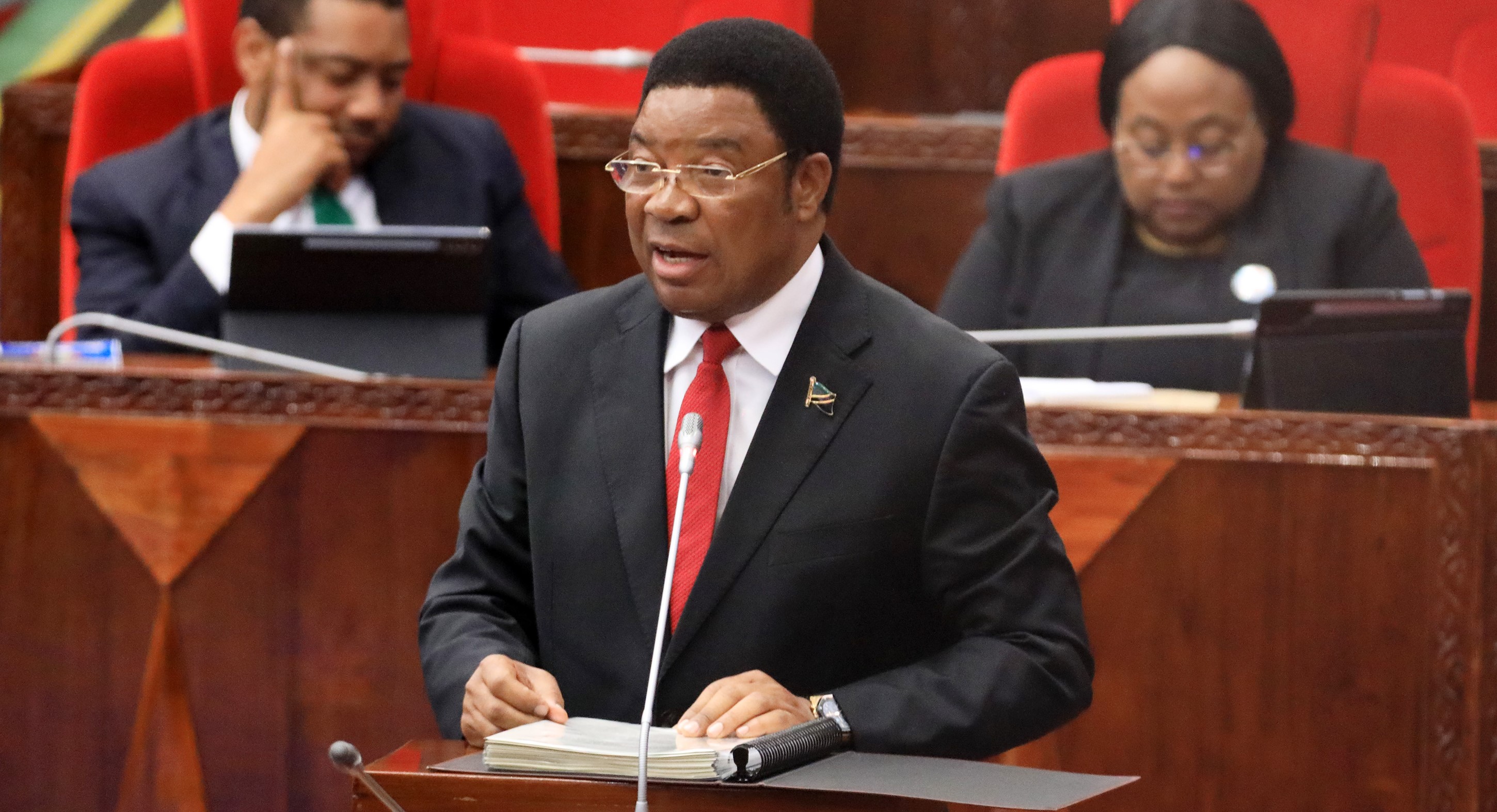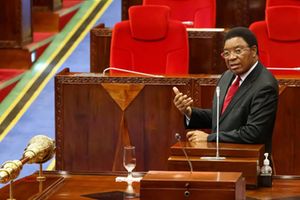Aga Khan University turns Math into a canvas of creativity for Tanzanian learners

What you need to know:
- To mark the 2025 International Day of Mathematics in May this year, the university organised an engaging event under the theme "Mathematics, Art, and Creativity", showing how math can be taught through artistic expression, coding, robotics, and real-life problem solving.
Dar es Salaam. In a country where many students fear mathematics and view it as one of the toughest school subjects, the Aga Khan University’s Institute for Educational Development, East Africa (IED, EA) is taking a new approach—making math enjoyable, creative, and technology-driven.
To mark the 2025 International Day of Mathematics in May this year, the university organised an engaging event under the theme "Mathematics, Art, and Creativity", showing how math can be taught through artistic expression, coding, robotics, and real-life problem solving.
Held in Dar es Salaam, the event attracted over 130 participants—teachers, students, and education experts—who were introduced to hands-on tools and innovative teaching practices.
“This is how we want to change the way math is taught in Tanzania,” said a faculty member at AKU, Dr Howard Omukami. “We aim to spark love for this subject in both teachers and learners and transform the entire approach to mathematics in schools.”

At the heart of the event were interactive workshops led by Young Engineers, a STEM education initiative that uses LEGO Master Builder Kits, VEX Robotics, and coding tools to build machines and explore abstract patterns.
These activities helped learners understand complex concepts like geometry, sequences, and probability in fun, engaging ways.
“Math becomes easier when you can touch it, move it, and see it working,” said one participating teacher. “This is how our classrooms should be.”
Students also showcased creative projects that blended math and art—from symmetrical carvings and painted charts to digital simulations using GeoGebra. These exhibits proved that math isn’t just about numbers; it’s a powerful tool for creativity and critical thinking.
In Tanzania, mathematics performance remains a national concern. According to the National Examinations Council of Tanzania (NECTA), pass rates in mathematics for Form Four students have consistently hovered below 40 percent in recent years.
Many learners struggle with basic numeracy, and a shortage of qualified teachers—especially in rural areas—exacerbates the problem.
Dean of IED, EA, Prof Jane Rarieya, said that this performance gap often stems from how the subject is taught. “In many classrooms, math is presented in a rigid and abstract way. Events like this offer creative strategies that can help learners connect with the subject on a deeper level,” she explained.
“We must make math more human—more connected to everyday life, to art, to technology. That’s how we build confidence and skills.”
One of the major goals of AKU’s math programme is to improve teacher training. Through events like this, the university provides educators with access to digital tools, teaching techniques, and modern content delivery methods.
“Our teachers need continuous professional development,” said Dr Omukami. “They must not only master the content but also learn how to inspire learners through real-world applications, games, and technology.”
Participants also learned how to use coding with Python to demonstrate mathematical patterns, while others explored the use of rhythm and music in understanding math concepts like ratio and sequence.
“Mathematics is not just numbers—it is rhythm, structure, and beauty,” said Prof Afraaz Adam Mulji, who used a tabla, a traditional musical instrument, to show how music follows mathematical patterns.
Similarly, a doctor and STEM advocate, Dr Lwidiko Mhamilawa, showed how math models are used in tracking epidemics and improving public health.
From Islamic geometric designs to African fractals, the event highlighted how mathematics exists across cultures, often expressed artistically. “Art breathes life into math, making it easier to grasp and remember,” said one student.
AKU’s math initiative is more than just a one-day celebration. It represents a growing movement to rethink how math is taught across Tanzania. The institution is developing programmes to support teachers in using blended learning, encourage more STEM enrollment, and prepare students with 21st-century skills.
With the rise of automation, artificial intelligence, and data science, math is more relevant than ever. Yet in Tanzania, only a small fraction of students pursue advanced math and science courses. This initiative could help reverse that trend.
“Math is the foundation for science, innovation, and problem solving,” said Dr Omukami. “When we make it accessible and enjoyable, we open doors for young people to become engineers, scientists, and creators of the future.”




